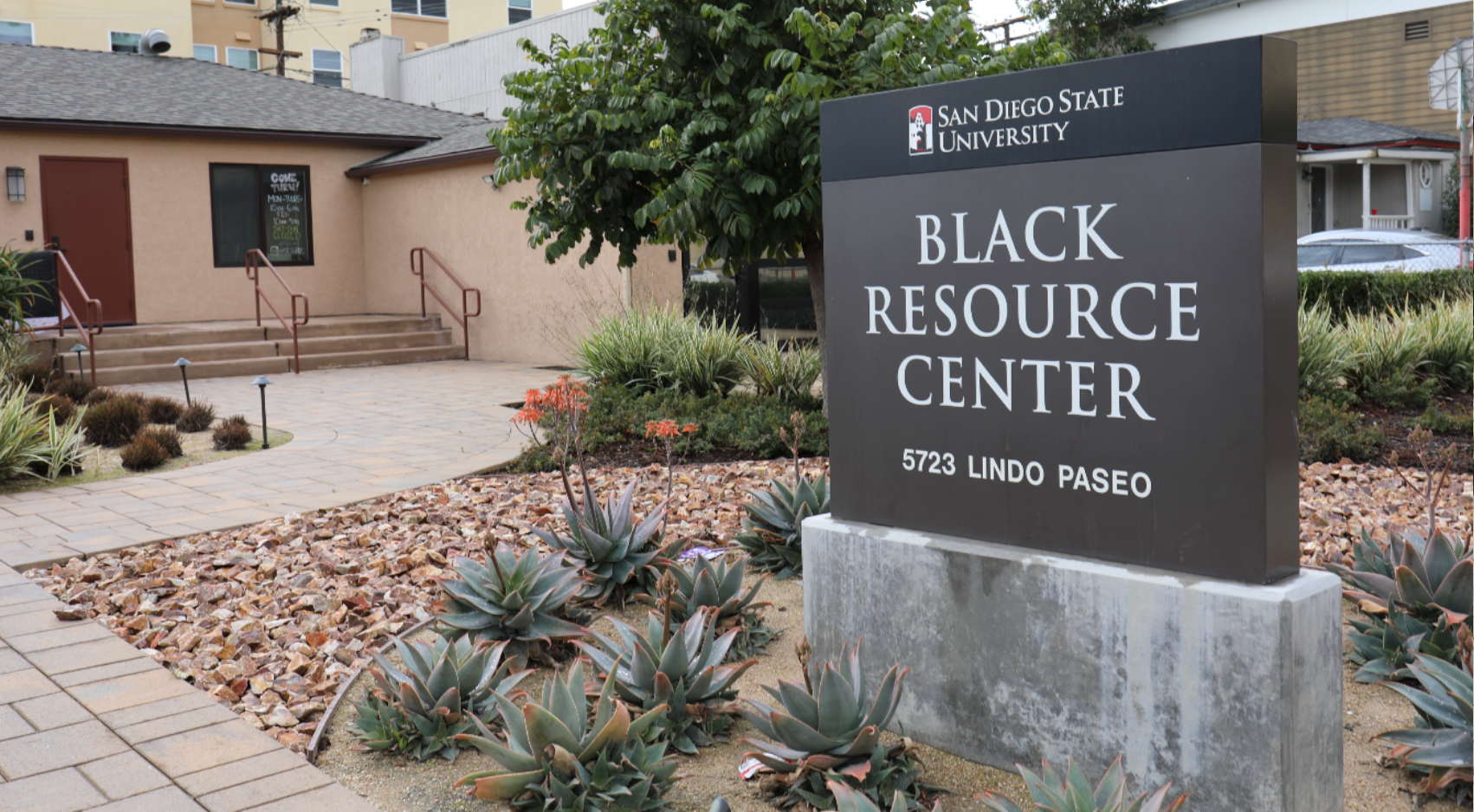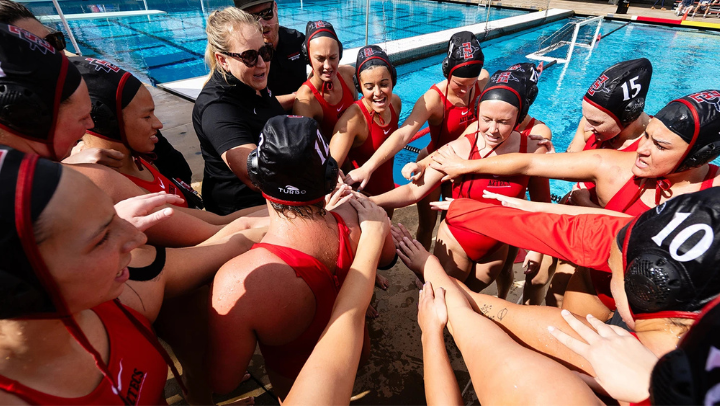Black Women's Healing Circle and Black Men's Warrior Collective
The SDSU Black Resource Center is home to two organizations aimed at supporting Black students and their mental health needs.

As San Diego State University celebrates Black History Month and the cultural, political, social, and educational contributions Black people have made globally, the work SDSU is doing on campus highlights the priorities of Black students.
While fighting for progress and equity are necessary steps for change, SDSU’s Black Resource Center (BRC) also recognizes the mental toll that work can take on Black students. As a result, the BRC is home to two organizations aimed at protecting and preserving Black students’ mental health: Black Women’s Healing Circle and Black Men’s Warrior Collective.
Since its founding in 2016 by Africana Studies professor Antwanisha Alameen-Shavers, the Black Women’s Healing Circle is a safe space to explore self-care, communal healing, and mindfulness strategies. The group, a collaboration between the BRC and the Women’s Resource Center (WRC), invites “Black feminine centered individuals” into a peaceful, encouraging environment with like-minded peers.
“It takes a lot of work to heal,” adds Da’Vie Guzman, a second-year graduate student in the Women’s Studies Department. Guzman, who spends most of her free time in either the WRC or the BRC, has participated in and led workshops for the Black Women’s Healing Circle since joining SDSU’s campus as a transfer student.
“When we have spaces specifically for Black women to acknowledge the pain, the hurt, the joy that we experience in our lives then it can also provide a space of healing.”
As the Black Women’s Healing Circle honors the legacy Black cisgender, non-binary, and transgender women have had in the fight against systemic oppression, the group also highlights the right to peace of mind and peace of spirit.
Similarly, the Black Men’s Warrior Collective serves the needs of Black male centered individuals, offering solace and mentorship for all who attend.
Graduating fourth year majoring in Interdisciplinary Studies with an emphasis on Africana studies, kinesiology, and psychology, Fraol Olyad has attended multiple meetings at SDSU.
Olyad said “seeing the vulnerability and depth from these men I see on a daily basis” has offered a more well rounded view of the men around him.
In no other space can Black men at SDSU “take off the mask,” he added, and truly be open and honest with each other with judgment or fear of judgment. The topics of each meeting vary from leadership skill building guest speakers, all in the aim of empowering and uplifting Black men in higher education.
The care and attention to detail paid to students in both the Black Women’s Healing Circle and the Black Men’s Warrior Collective underlines the living legacy Black students represent. As SDSU continues to honor Black History Month, groups such as these invest in the future health, success, and community support of Black students at SDSU.
For more information about these services, please reach out to the Black Resource Center directly to connect with either organization.



